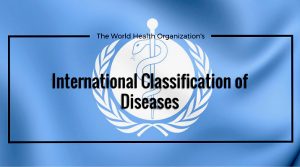The role of clinical informaticist is evolving according to a recent report from the Journal of the American Medical Informatics Association.
As the industry evolves to making use of EHR data through innovative approaches to analytics, the clinical informaticist’s role evolves with it as these professionals have a greater understanding of how health IT implementations affect clinician productivity and workflow as well as patient satisfaction.
The American Medical Informatics Association created its Clinical Informatics (CIS) subspecialty and Core Content to reflect current practices in 2009, but since then, the work of someone practicing clinical informatics has changed drastically.
This has caused an issue in that many organizations do not accurately understand the work being done by the clinical informaticists they employ.
The AMIA’s survey was designed to find out what clinical informatics professionals’ workload is made up of, with the idea that they could update the core content and thus, develop a delineation of practice that would be contemporary and help improve and update the American Board of Preventative Medicine’s competence exam for certification.
The response to the survey revealed that those working in clinical informatics spend around one-third of their time on improving care delivery and outcomes and a little more than a quarter of their time working on leadership and professionalism. They estimated that they spend around 18% of their time working on enterprise information systems and another 18% of their time on data analytics and governance.
The findings differ from the core content due to the growth of data analytics and responsibilities related to data governance. But beyond that, they hope the research will inform job descriptions, performance evaluations, hiring decisions and professional development offerings for those practicing clinical informatics.
Growing Need for Clinicians to Know Informatics
As the amount of technology in healthcare increases, so does the need for clinicians to understand it more thoroughly. As noted in a report from The BMJ, it is estimated that the world will “produce more than 2.5 quintillion bytes of data every day (a quintillion is 1 followed by 18 zeros), and, by 2025, the total number of genomic data will likely surpass that for astronomy, YouTube, and Twitter combined.”
That volume and prevalence of data in care has repercussions for how clinicians practice. With a vast array of tools to collect and analyze data, knowing how it is collected, what can be done with it and how to present findings so that others can derive the most value from it will help clinicians guide this era of rapid technological adoption.
One reason those practicing clinical informatics report spending a quarter of their time working on leadership and professionalism is that they often gravitate toward leadership roles thanks to their ability to bridge the gap between IT operations and other clinicians. Many have taken on the challenge of filling a Chief Medical Information Officer role. An article from Becker’s Hospital Review highlights a number of CMIO’s stories. Diane Hunt, from Deaconess Health System in Indiana, reflected on her experience in starting an ambulatory practice after residency in which she volunteered her practice to be a guinea pig for an EHR vendor.
“That first implementation was a disaster, and I knew that we needed to have more physician involvement to make transitioning to the electronic record a success for our providers,” Hunt said in the interview. “The experience led me to initiate a conversation with our CEO about the need for a physician champion and my eventual transition to that role. I felt that I needed to get some formal training to back up the initiatives I was leading, so I went back to school and got a master’s degree in informatics. Eventually I was able to get my board certification in clinical informatics, as well. That physician champion role transitioned to a medical director role and eventually the move to the CMIO role.”




